Events
Seminar
A social realist methodology: how we use Legitimation Code Theory (LCT) in our research
Seminar on 26th March 2019
Researchers from Durham University, Sussex University, Nottingham University and Sheffield Institute of Education will present methodological insights gained from doctoral research. This seminar is part of a meeting of the LCT UK Research Group being held on this day.
Tuesday, 26th March 2019, 12:00-13:00
Room 12.4.17, Charles Street Building, Sheffield Hallam University
Legitimation Code Theory (LCT) is a framework developed by Karl Maton (2004, 2010, 2013) that provides a means of analysing socio-cultural practices in education along a number of dimensions, or 'legitimation codes'. The coding orientations of these dimensions provide the organising principles underlying practices and their contexts. In this seminar we will briefly describe how we have enacted LCT codes in our doctoral research in education. Each of three brief presentations will cover one aspect of the research to illuminate methodological insights and decisions that will be of interest to doctoral students as well as experienced researchers.
Specialising a curriculum: Towards a topological view of practice in English for Academic Purposes (EAP)
Steve Kirk, Durham University
How LCT Specialisation was used to analyse the underpinning values and goals of an EAP programme for international postgraduates, differentiating knowledge from knowing, to reveal shifts in curricular practices and a nuanced view into how the course becomes differently specialised for different groups of students.
What makes for legitimate professional knowledge in Initial Teacher Education?
Diane Swift, Keele University
How LCT Semantics is being used to visualise and explore how teacher trainee / mentor dialogues relate to context and performance, and how much to pedagogic concepts and their associated dilemmas. How the resultant semantic profiles may further aid appreciation of the significance of pedagogic concepts beyond the immediate context.
Examining teachers’ autonomy in curriculum making in Higher Education
Richard Pountney, Sheffield Hallam University
How LCT Autonomy was used to examine the work of course teams in planning and designing the curriculum, and how the data was encoded and interpreted to develop anexternal language of description for curriculum development knowledge, as the know-that as well as know-how of curriculum making.
Background: LCT emerged as an approach for the study of knowledge and education and is now being used to analyse a growing range of social and cultural practices across increasingly different institutional and national contexts, both within and beyond education. LCT builds most directly on the approaches of Basil Bernstein and Pierre Bourdieu. It also integrates insights from sociology (Durkheim, Marx, Weber, Foucault), systemic functional linguistics, philosophy (such as Karl Popper and critical realism), cultural studies, anthropology (such as Mary Douglas and Ernest Gellner), and other approaches. See http://www.legitimationcodetheory.com for key papers, recorded lectures, networks, PhDs, conferences, etc.
Attached Files
LCT UK Seminar Flyer [File: LCT UK 26th March Seminar Flier (v2).pdf]
Comments
There are no comments for this post.
